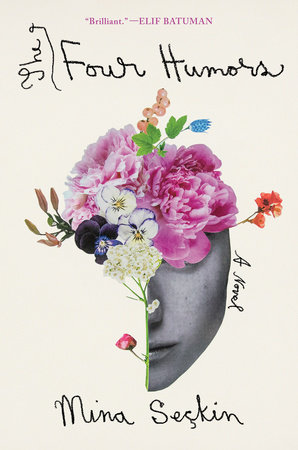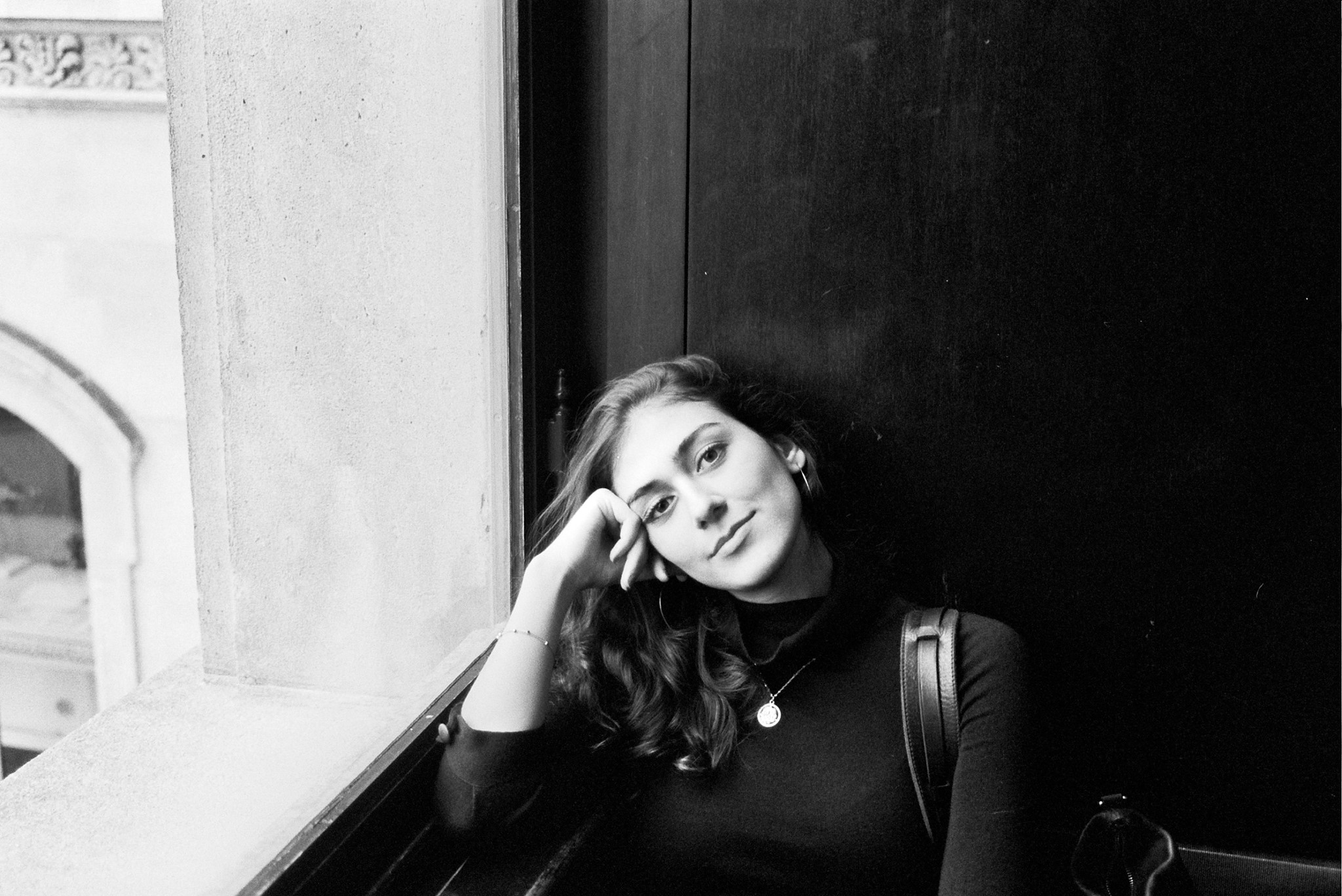In her novel The Four Humors, Mina Seçkin follows a Turkish-American protagonist as she navigates a complex landscape of physical, mental, emotional, national, and generational health.
Seçkin is also the managing editor of Apogee Journal, as well as the author of several short stories and essays. Hayat spoke with her about her Turkish-American identity, the politics of health, and more.

The Four Humors by Mina Seckin
Tell me a bit about your cultural identity and relationship with Turkey. Has that identity changed over time, and if so, how?
I grew up in Brooklyn, where my parents immigrated from Turkey before I was born. My childhood consisted of spending each summer in Turkey with my grandmother, up until summer jobs and other commitments in adulthood began to change how often I went to Turkey, and for how long I was able to stay. When you’re a kid of immigrants, you have this second coming of age and it begins early, and I’m not sure it ever ends. It’s when you start reckoning with where your family comes from and how you fit into that world, and how that inextricable part of yourself defines who you are at home—home which is, for me, New York City. And like many kids of immigrants, I often felt othered growing up in America, while in Turkey I felt alienated, too. In America, I didn’t have an accent, my parents did. In Turkey, my parents didn’t have an accent, but I did.
There are other levels of dissonance, too. I always think about the privilege of having American citizenship and being able to go to Istanbul for vacation—I have a choice; I don’t have to live there—but also feeling the effects of what happens in Turkey because my family is there and is living in conditions that are difficult in various ways. Then there’s the legacy of Turkish history, and grappling, from a Turkish-American perspective, of the stories, histories, and disputed facts that you were raised hearing, and what you then learn for yourself. I think to be a Turkish person is to constantly reevaluate Turkish history with additional tools, and more perspectives, especially the perspectives of marginalized identities within the Turkish nation.
Today, I still feel this insider/outsider sentiment, but I’m more comfortable allowing both identities to exist within me. I’m finding more community, too; where I once was often the only Turkish or Middle Eastern person in a room, that’s finally changing. I’m so grateful for this sense of kinship in diaspora.
What comes to mind first when you think of Turkey?
My grandmother’s apartment in Istanbul. Food, of course, and smells, too. The smell of butter, meat, phyllo dough, cigarettes. Turkey, for me, is foremost my family. When I think of the place, I’m reminded most of everyone I love who lives there, left there, died there.
The Four Humors has a focus on or frame of health, but broadly construed—not just physical well-being, nor even emotional, but also cultural, familial, generational. What to you is the relationship between these aspects?
In jest, my mom once said to me, “Middle Eastern girls don’t get to be depressed.” She was just joking, and we’d laughed at the time, but the sentiment became a guiding post for this novel, a novel which, I believe, imagines the personal as political in a manner inseparable from not just your mental health and bodily illness, but also the larger body politic of the nation.
Middle Eastern daughters are often the emotional and physical caretakers of families and it’s only in recent generations that many have been allowed to forge an independence outside of the expectations of family and marriage. In writing The Four Humors, I thought a lot about what Turkish women could and could not do, in the past and today. My narrator, Sibel, is an American millennial kid of Turkish immigrants, and though she has so much opportunity in front of her, she’s experiencing difficulty moving past her grief and depression. She’s aware that she’s one of the first women in her family who has such professional and educational freedom, and she’s grappling, too, with the expectations of these two different cultures and of carrying those divisions inherent to diaspora within your body.
Then there’s the body politic of the larger Turkish nation and its undiagnosed generational conflict as it relates to identity, religion, class, and sexuality. Like I mentioned, for me, the personal is always political. It’s bodily, too, and I had to emphasize how the political structures in a nation will directly affect the lives, as well as the physiological “health”, of each family member, especially the women in the novel who came of age in in the 50s and 60s, and whose lives were marked by patriarchal structures that did not prioritize their freedom.
What was the most rewarding part of writing The Four Humors? The most difficult?
I am in awe, especially, of every writer working on their first books. It is emotionally challenging to write countless drafts without knowing that your novel will ever be published. I felt so much doubt over the two years I was writing and editing this novel; it’s a doubt that I believe can only be counteracted by submitting to your own obsession and faith in the story that you’re telling. A belief that the story will reach one person who needs to hear it.
The most rewarding part of writing this novel subsequently is, I believe, exactly that: reaching exactly that one person who needed to hear the story. A lot of us grew up not seeing our identity in the novels and stories we read over the years. Today, those stories are coming out, and we’re putting to words a feeling we’ve felt lost about. What was unmoored seems to be coming to shore. It means a lot to me when a Turkish American person reaches out to share that The Four Humors meant something to them, or helped them, or moved them in any way. This simple note reminds me, again and again, of why I write: to cast some light into a shadowed space. By casting this light, you’re asking questions, questions that no, can’t be answered, but they can help people find a small sense of communion.
Did you always want to be a writer (and editor)?
I was a reader before I was ever a writer, and at some point, as a teenager, I fell headfirst into poetry. Prose came later, but mine at least is still guided by the weighing of each word in a sentence. I followed a writer’s path that was bound, in large part, to institutions and schooling; once I graduated my MFA program in fiction, I learned—and am continuously learning—what it means to be a writer in a world where you hold a day job, too, and beyond that day job, have commitments to family, to friends, to the community you are part of.
Finding the time to write amidst daily life can be difficult, but it’s important to me to remember that that daily life is as important as writing, especially because a writer who works in a vacuum is not, at least, the kind of writer that I want to be.
What’s up next for you? Any projects in the works?
I’m working on a handful of projects right now. A few stories, most of which I’ve been culling out of several abandoned drafts of a novel, the latter of which has proven difficult to write. It’s important for me to be honest with myself about what is and is not working, and by “working” I mean, is this story exciting and complex to me? All writing is hard, but is writing it fun? I think listening to when you’re having fun is really important as you write. If you’re not writing what you want to be writing, you can write something else, and I think the work will be stronger for it.
Purchase The Four Humors by Mina Seçkin here.



